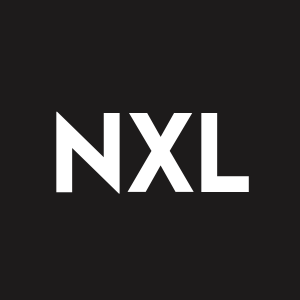Nexalin Technology Awarded Key Patent Related to its Non-Invasive, Frequency-Based Deep-Brain Stimulation Device – the Transcranial Alternating Current Dynamic Frequency Stimulation (TACS) System
HOUSTON, TX, Jan. 23, 2024 (GLOBE NEWSWIRE) -- Nexalin Technology, Inc. (the “Company” or “Nexalin”) (Nasdaq: NXL; NXLIW) today announced that the United States Patent and Trademark Office (USPTO) has awarded U.S. Patent No. 11,872,397 relating to the Company’s non-invasive, frequency-based deep brain stimulation device. The newly-issued patent, entitled “Transcranial Alternating Current Dynamic Frequency Stimulation (TACS) System,” covers the core technology utilized in the Company’s Gen-3 system, a proprietary and advanced waveform device that is designed to treat patients in a painless and undetectable manner.
The Gen-3 system reflects state-of-the-art development of Nexalin’s Deep Intracranial Frequency Stimulation (DIFS®) technology, and a significant advancement to the predecessor Gen-1 system. The Company’s technology uses a digital breakthrough in electrical waveforms to provide deep and painless brain neural stimulation. The Gen-3 system is applied through the placement of strategically-positioned electrodes on the patient’s cranium, and provides deep stimulation to regions of the brain associated with mental health conditions.
Mark White, CEO of Nexalin Technology, stated, “This patent award for our non-invasive, deep-frequency stimulation device marks a major milestone for the Company, as it extends our IP protection through 2040. Most notably, the unique nature of our device’s waveform can only be created with very specific electrical components, capacitors and designs. This patent covers these three key areas, and we believe it further protects the Company from others trying to circumvent our IP. Importantly, this patent marks what we believe is a major advancement for the drug-free treatment of mental health conditions. Recent published clinical evidence supports the clinical benefits of the Nexalin device for the treatment of a variety of neurological diseases associated with deep brain structures. At Nexalin, we are highly encouraged that our DIFS® technique will improve mental healthcare outcomes among patients. Specifically, clinical studies have demonstrated therapeutic benefits in conditions ranging from treatment-resistant depression to migraines, anxiety, and insomnia. We are also targeting mental health conditions such as addiction, substance use disorder, Alzheimer’s, traumatic brain injury (TBI) and PTSD. According to Allied Market Research, the global mental health market was an estimated
About Nexalin Technology, Inc.
Nexalin designs and develops innovative neurostimulation products to uniquely and effectively help combat the ongoing global mental health epidemic. All of Nexalin’s products are non-invasive and undetectable to the human body and developed to provide relief to those afflicted with mental health issues. Nexalin utilizes bioelectronic medical technology to treat mental health issues. Nexalin believes its neurostimulation medical devices can penetrate structures deep in the mid-brain that are associated with mental health disorders. Nexalin believes the deeper penetrating waveform in its next-generation devices will generate enhanced patient response without any adverse side effects. The Nexalin Gen-2 15 milliamp (mA) neurostimulation device was recently approved in China by the National Medical Products Administration (NMPA) for the treatment of insomnia and depression. Additional information about the Company is available at: https://nexalin.com/.
FORWARD-LOOKING STATEMENTS
This press release contains statements that constitute "forward-looking statements," These statements relate to future events or Nexalin’s future financial performance. Any statements that refer to expectations, projections or other characterizations of future events or circumstances or that are not statements of historical fact (including without limitation statements to the effect that Nexalin or its management “believes”, “expects”, “anticipates”, “plans”, “intends” and similar expressions) should be considered forward looking statements that involve risks and uncertainties which could cause actual events or Nexalin’s actual results to differ materially from those indicated by the forward-looking statements. Forward-looking statements are subject to numerous conditions, many of which are beyond the control of the Company, including those set forth in the Risk Factors section of the Company's Report on Form 10-K for the year ended December 31, 2022 and other filings as filed with the Securities and Exchange Commission. Copies of such filings are available on the SEC's website, www.sec.gov. Such forward-looking statements are made as of the date hereof and may become outdated over time. Such forward-looking statements are made as of the date hereof and may become outdated over time. The Company undertakes no obligation to update these statements for revisions or changes after the date of this release, except as required by law.
Contact:
Crescendo Communications, LLC
Tel: (212) 671-1020
Email: NXL@crescendo-ir.com








